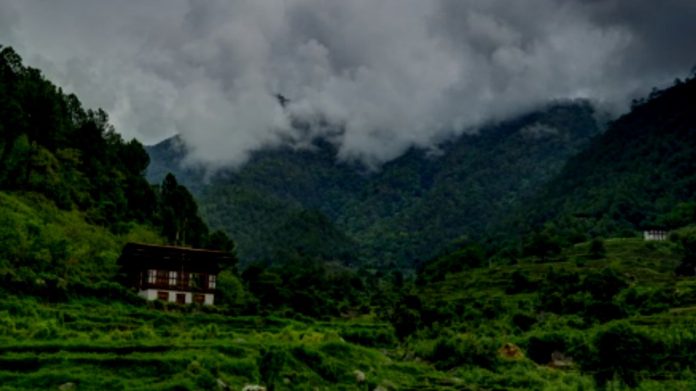Bhutan a country blessed with lush green valleyes, sky touching mountain peaks, flowing rivers and forests is envy for nations of the world in this era of global warming and drastic climate change. More than 70% of Bhutan’s area is covered with forests making it among top 10 countries of the world with a highest land to forests ratio. When counries in the world are figuring out ways to reduce their carbon footprint, Bhutan is lucky enough to be an only carbon negative country because of its forestation policies which are deeply rooted in country’s constitution. But it seems that the economic experts still don’t think forests as an investment that can ensure the long term sustainable future and survival of life on Earth.
Recently, a blog by Mercy Tembon who is World Bank’s country director for Bangladesh and Bhutan caught people’s attention after World Bank South Asia shared it on Twitter. In her blog post Mercy has made a point for how investing in Bhutan’s under utilized forest cover that only contributes less than 3% to the GDP can ensure a sustainable future of the country.
Respective Twitter post has made folks raise questions on if a South Asian country’s forest cover which constitutes the 70% of its land is really under utilized at the time when the world is looking for ways to contain rise in temperature to 2 degree celsius.
Shouldn’t World Bank Leave Bhutan Alone
A social media user tweeted ‘World Bank, leave Bhuta alone’.
Mercy in her post acknowledges the fact that Bhutan is a carbon-negative country. She argues that only 7.3% of Bhutan’s forest is under commercial management and despite such a huge forest cover the country is still a net importer of forest-related products. She then elaborates on how wood has a huge market in the world for its ability to serve esthetic purposes and to store the carbon (the reason why it is used as fuel) and this can serve as an economic opportunity for Bhutan a country with a population of almost 0.76 million.
No one seems to appreciate the idea of capitalizing on Bhutan’s forests even if it promises to include the principles of sustainable development and address the challenges that may come in its way.
Bhutan is one of the happiest nations in the world and also the pioneer of gross national happiness. It might be lagging behind in terms of per capita GDP and other traditional economic indicators but that doesn’t make its people and the Earth miserable. If Mercy’s point is all about the economic prosperity of people of Bhutan in terms of income then it is valid up to an extent that it doesn’t harm Bhutan’s forest cover in any way. The country must not consider cutting down trees to build the esthetic structures like Mjosa Tower near Oslo (an example that she has given in her article) as it will destroy the beauty of Bhutan that can serve the purpose of sustainable tourism.
What will happen to the Carbon Negative Country
There was indeed a reason why most of the comments regarding this article were critical of Mercy’s point of view. As this user asked if the World Bank was encouraging deforestation in only carbon negative country?
The world has already seen the adverse consequences of deforestation in Amazon rainforests at the hands of corporates in the name of exploring economic opportunities. It can’t afford to compromise conserved forests even in the guise of sustainable development. Luring Bhutan in the trap of economic gain to compromise its forest resources will simply mean destroying a carbon sink. Hence, this is the reason why the World Bank should leave Bhutan alone.


